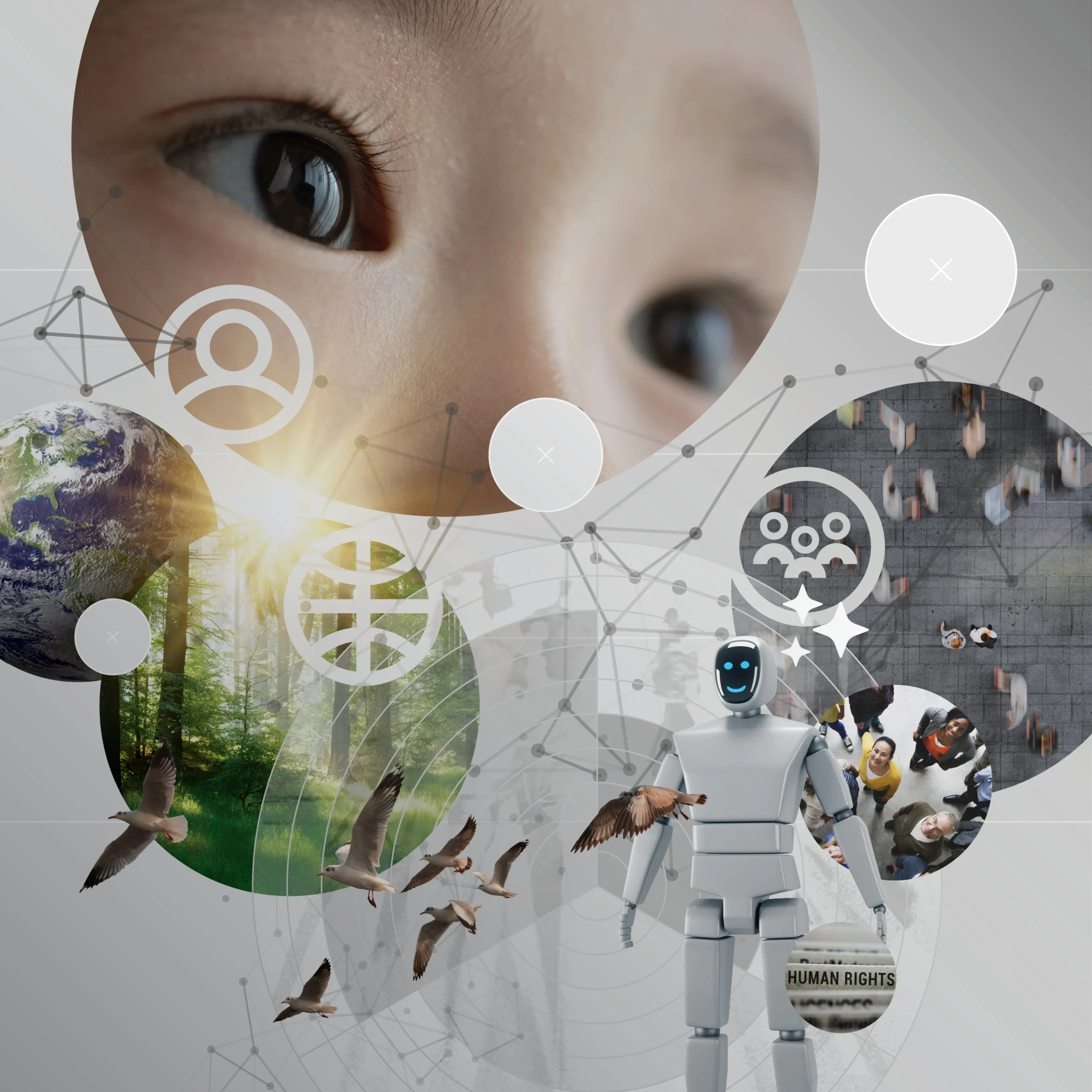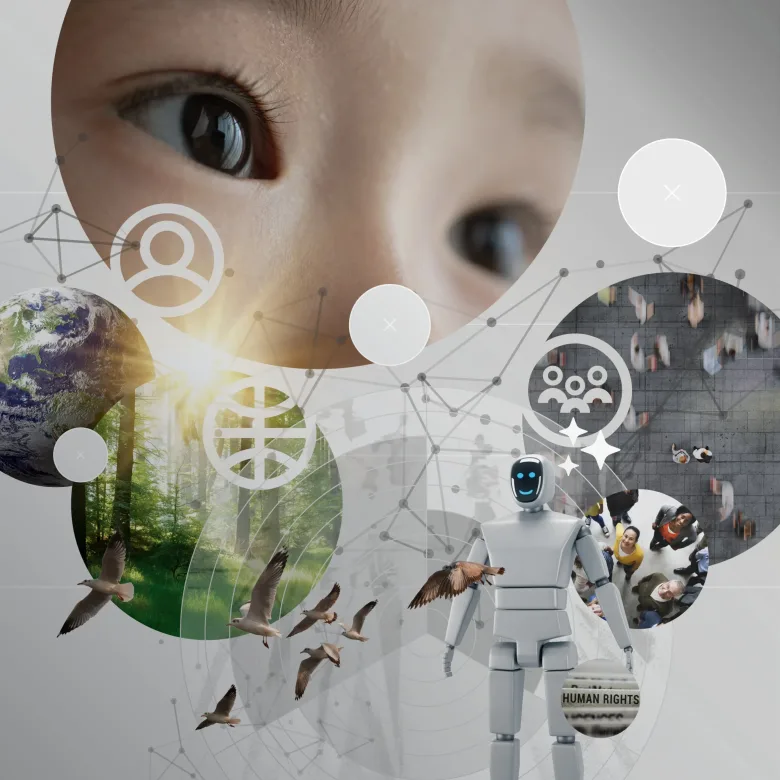Humans are sense-making beings. Our understanding of ourselves, other people and the world around us influences who we can be, what we can think, and how we can live together. Just as science and technology build and alter the material and virtual infrastructures of our reality, the social sciences and humanities furnish us with the conceptual and framework infrastructures needed to interpret how human beings and societies evolve within that changing reality. The social sciences and humanities thus do more than merely describe the backdrop for techno-scientific advancements: they actively contribute to shaping them.
Conversely, techno-science-driven transformations challenge some of the most foundational concepts in the social sciences and humanities, such as “intelligence” in the era of general-purpose AI, “rights” in the context of neurotechnologies and “environment” amid climate-engineering initiatives. The reason is simple: as technoscientific infrastructures transform reality’s basic features, traditional concepts and frameworks may no longer fully apply. Scientific and technological advancements, therefore, necessitate rethinking the tools that social sciences and humanities use to understand and explain reality, thus opening the space of opportunities and action for new possible orientations. To this end, again, we must anticipate the future of social sciences and the humanities.
This is no trivial task. Akin to Hegel’s owl of Minerva, which spreads its wings after the day’s main events have taken place, these disciplines are traditionally reflective and backward-looking, making sense of a world just as it passes away. Transitioning to future-oriented, anticipatory and constructive social sciences and humanities thus involves a paradigm shift towards imagining the futures of individuals, societies and planet, and the related fundamental interrogations they raise. Key questions to guide this shift include:
What are the disciplinary trends, emerging research fields, potential disruptions and transformative questions ahead in the social sciences and humanities? How can we foster anticipatory dialogue and synergies between the social sciences and humanities, science and technologies? Exploring these questions across the individual, collective and global levels offers a glimpse into this future-oriented approach.
At the individual level, the focus is on our human nature and existential condition. A future topic in the social sciences and humanities will be fully integrating the situatedness of human agency in context, where no single agent exists independently but is instead always embedded within a network of other agents and technologies that co-produce the individual self.
Moving away from an egocentric to a relational model of future technology-powered subjectivity will challenge the perceived uniqueness of our human condition and maybe even call for extending kinship to non-human agents, including artificial ones. Anticipatory dialogue and synergies between the social sciences and humanities, science and technologies will be essential to align interests and needs in the creation of such relational subjectivities, ensuring that they support new forms of individual freedom and self-determination throughout all human-machine interactions.
At the collective level, the focus is on how we live together in societies. A critical issue for future social sciences and humanities will be determining what can be universalised based on our shared humanity within multi-layered societies of values. Welcoming “otherness” in diverse sociocultural environments will be vital for negotiating legitimate universal values that respect divergent value systems across various societal scales, against the non-negotiable baseline of upholding human rights.
Beyond cosmopolitanism, new social models will need to catalyse transcultural, multi-perspectival experiences of human collectivities. Cross-disciplinary anticipatory dialogue and synergies will be needed to balance the risks and opportunities of techno-scientific governance in technologised societies while promoting social freedom and collective human flourishing.
At the global level, the focus is on our relationship with the planet, geared toward sustainable futures. A critical challenge for cross-disciplinary anticipatory dialogue and synergies will be to continue bridging the theory-practice gap by engaging local practitioners with scientific research to match ecological priorities with social opportunities through knowledge co-production and co-learning.
Reconciling technology, nature and humans in new futuristic imaginaries powered by shared aspirational narratives will be instrumental in achieving the radical transformations required for beneficial planetary outcomes. Future-oriented social sciences and humanities will provide the concepts, methods and frameworks for societies to collectively create realistic fictions about the kind of world they want to help bring into being and act upon them.
The future of social sciences and humanities lies in operationalising new imaginaries for future orientations in our multi-layered, pluralistic societies. This will involve designing, negotiating, translating and implementing innovative concepts and frameworks. Along these processes, interdisciplinary exchange alone is insufficient: cross-sectoral cooperation and integration must materialise to comprehensively understand and anticipate shifts of mindsets that will reshape the world. Only then can we embrace accelerating global change in forging a path toward more inclusive and sustainable futures.






